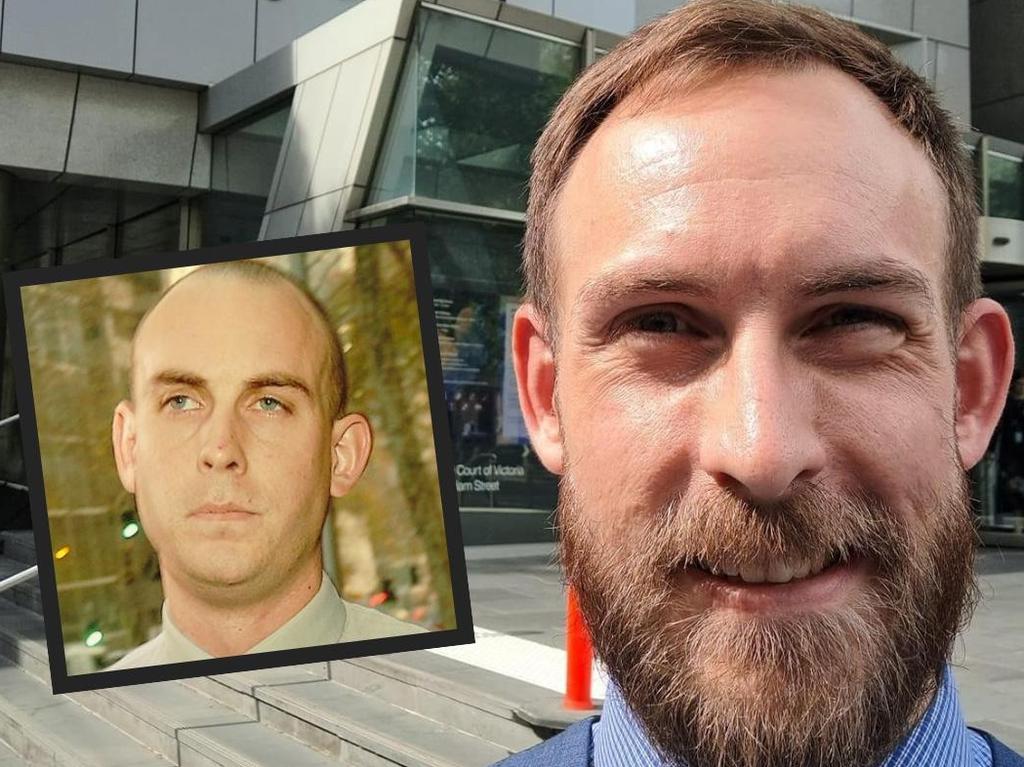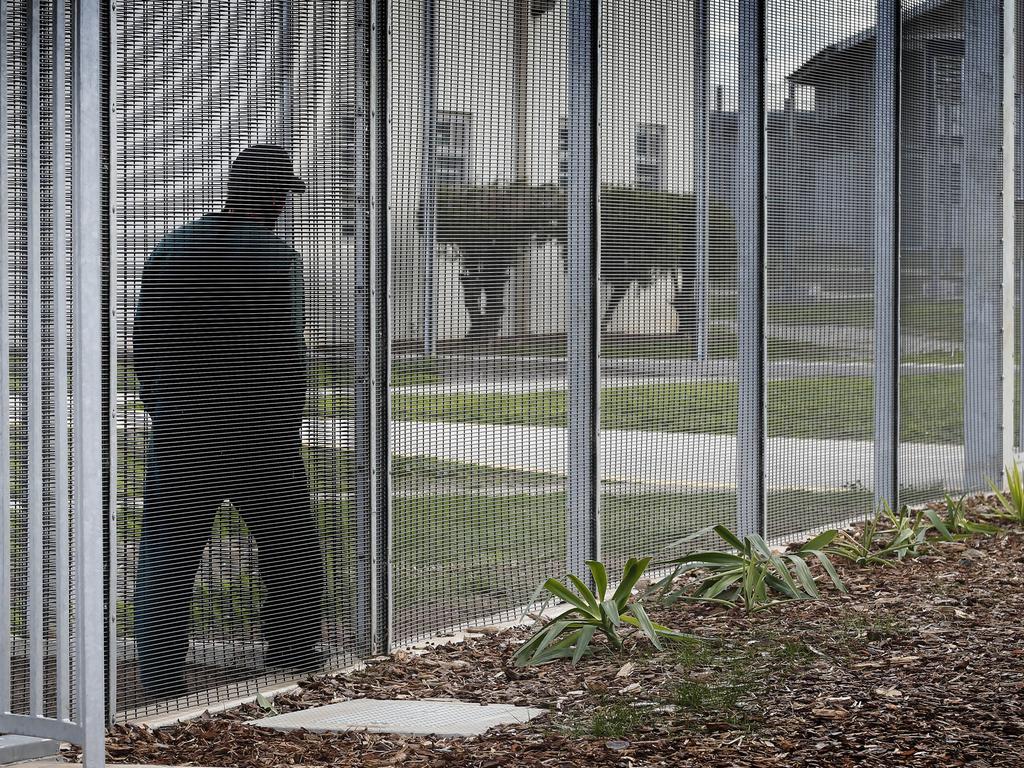‘Farms need fruit pickers’: Former inmate backs calls to put youth offenders to work
A prison inmate who was locked up in his 20s for fraud and drug offences has called for a radical solution to the rapidly spiralling youth crime crisis.
At Work
Don't miss out on the headlines from At Work. Followed categories will be added to My News.
An ex-prison inmate who was locked up in his 20s for fraud and drug offences has called for a radical solution to Victoria’s rapidly spiralling youth crime crisis, saying the current system is clearly “failing”.
Jordan Dittloff, 35, who spent more than two years behind bars, including nine months at the maximum-security Port Phillip Prison, has backed former Premier Jeff Kennett’s proposal for a radical reform of the youth justice system that would see young offenders who commit relatively minor crimes “removed from the prison environment” and put to work.
“The things that are going to help kids like that is finding a job that’s meaningful, some kids are naturally predisposed to want to build things and do work,” said Dittloff, now a law graduate and youth justice reform advocate.
But Dittloff says Mr Kennett’s proposal for such facilities to be managed and run by Corrections Victoria would only add another layer of bureaucracy to a “system that’s already failing”, and the real solution was to allow offenders to be sent to real farms under “work diversion orders”.
“There’s heaps of real farms, dairy farmers, sheep shearers, real employers who need workers like fruit pickers,” he said.
“You can actually kill two birds with one stone, and help the kids, some of them for the first time, experience how it feels to work hard and be rewarded.”
Victoria has seen a surge in youth crimes, with offences committed by those aged 10 to 17 jumping by more than 3000 to 14,898 in the 12 months to July 2023, the highest overall total in a decade, according to state police statistics released in September.

Police warned the trend was being driven by offenders aged 14 to 17, who were committing more violent and serious crimes including assaults, robberies and car thefts.
Last month, two 16-year-old boys were charged with murder after a Melbourne doctor was allegedly stabbed and hit by a car during a horror home invasion in Doncaster.
Speaking about the issue last week, Mr Kennett said the state needed to “do something different” to combat the crisis.
“It’s about ensuring that they are physically active,” he told 3AW.
“They don’t get put into a youth detention centre, they get put onto a facility such as a farm where they get up, they work hard, they go to bed at night, having also had access to educational opportunities. But they go to bed tired, mentally and physically.”
The former premier said under the current system, youth offenders who had committed relatively minor crimes were “put into facilities where there are hardened youth criminals who then impose their will through threats”.
“We’ve got to separate the first time offenders [who have committed minor crimes] from those who commit major crimes,” Mr Kennett said.
“At the moment, these young people are put into facilities which sadly are about simply getting through the day. And it’s not working … we need to do something different.
“Where you draw the line between the bad offenders, and what I would call, the less bad offenders would be for someone else to determine. But prisons should be, for many people, about rehabilitation.”
He conceded that “not everyone’s going to be rehabilitated, but for those young men or women who are doing things because it’s so called popular — because they can display their crime on social media — these are the ones that we’ve got to turn around quickly, re-educate them”.

‘Would have been dead’
Dittloff, a former travel agent and Young Liberals president, was sentenced to 27 months behind bars in 2016 after stealing $278,000 from clients.
He had also been charged with additional drug-dealing offences while out on bail following his initial June 2015 arrest.
The court heard that Ditloff began taking drugs in his early 20s and that has escalated to heavy use of ice, cocaine and ketamine, causing his life to spiral out of control until he abruptly shut the doors of his mother’s small travel agency, Ace Travel in Colac in the state’s southwest, in May 2015.
He had stolen money from 47 victims, including $30,000 from the local scouting group and $6825 from his own future mother-in-law.
“The breach of trust here has greatly affected the victims,” County Court Judge Gerard Mullaly said at sentencing, adding the theft revealed a “galling level of greed and entitlement”.
Dittloff, who apologised to his victims and has vowed to repay his debts, was also put on a two-year post-release community corrections order, which included 200 hours of community work.
“I think within a couple of months of going to prison I realised it was the best thing that could have happened to me,” he said.
“It sounds strange but my life was in a spiral, I probably would have been dead within a couple of weeks.”
Being behind bars, particularly at Port Phillip, was “not an experience I’m keen to repeat any time soon”.
“But it also wasn’t what you imagine in movies where you’ve got to fight the biggest person on day one,” he said.
“If you keep to yourself and be yourself, if you don’t go looking for trouble, people generally just form friendships or groups as you would in the real world.”
While he was in prison, Dittloff met a lot of people who had been through foster care, then juvenile detention, then prison, “almost graduated through this system of being institutionalised their whole lives”.

“That was a really common story,” he said.
That’s why he backs calls for a way to “break that pattern” early, when teens first start getting into serious trouble typically around 16.
“There need to be off-ramps and ways that young people can find the things that are going to help them stay away from that system,” he said.
The bulk of his sentence was at the minimum-security Beechworth Correctional Centre where he was on the community work crew, which would go out four days per week to help on local projects.
“That was hugely meaningful,” he said.
“People who say kids would be exploited [if they were given a work diversion order] miss the dignity and self-worth that comes with working hard.”
He believes the farming sector would also be “all for it”.
“The benefit with younger workers is that a lot of them might never have known about that kind of work and some of them might stick with it,” he said.
“The two single biggest factors in whether someone reoffends are education and work. By the 10 year mark around 66 per cent of people reoffend. Throw in education and employment and it reverses, 66 per cent of people don’t reoffend. I think if you can introduce that work element earlier, that could be a sliding doors moment that changes your life.”
He suggests that the other issue with the prison system currently is it has a “black and white” view of rehabilitation, that “if you’ve done your sentence you’re rehabilitated, but that’s not the way society sees it”.
“You can’t just say I’ve done my time, you must treat this person as if nothing ever happened,” he said.
“You can’t legislate forgiveness. You need to rebuild and rehabilitate your social standing in the community. You need to get young people to see the impact of their actions.”
For his own part, Dittloff has completed a Certificate IV in drug and alcohol counselling and has been making regular repayments to his victims.
“I’ve repaid a bit over $30,000 so far,” he said. “Obviously it’s a gradual process, as my life’s improved I can afford to give more.”
Originally published as ‘Farms need fruit pickers’: Former inmate backs calls to put youth offenders to work









